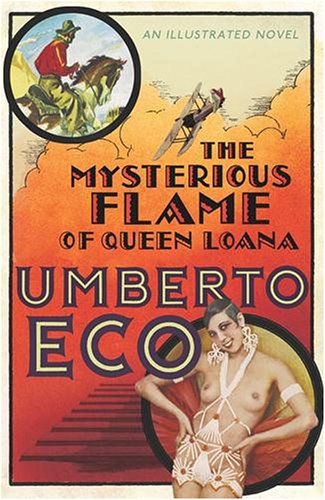Umberto Eco: The Mysterious Flame of Queen Loana

May 2015
We are introduced to our hexagenerian, Milanese antique book dealer and protagonist Yambo, as he wakes up in hospital after some undisclosed incident. And it seems that he has recovered well enough, except that he has lost all of his personal memories, so that, while he can rattle off facts about Napoleon and quote T.S. Eliot, Yambo cannot recall his own name, or that he is a husband, father and grandfather.
For the rest of the book, we follow Yambo as he tries to reconstruct his past. He goes back to his childhood home, where his past in the form of toys, books, comics, diary, vinyl records, etc., have been preserved. Re-reading the books and re-listening records, Yambo tries to imagine what it was like to be him growing up in fascist Italy.
Interesting, but not great. Yambo’s life is certainly punctuated by events intriguing to discover, but also included are numerous, what I will uncharitably call, expositions on mundane details (e.g., quoting in full song lyrics, descriptions of magazine covers and tin boxes, etc.) – details too remote from my experience to find interesting, but I guess may conjure great nostalgia in others.
Eco’s intertextual style comes off as academic to start, but I guess one gets use to it if not appreciative.